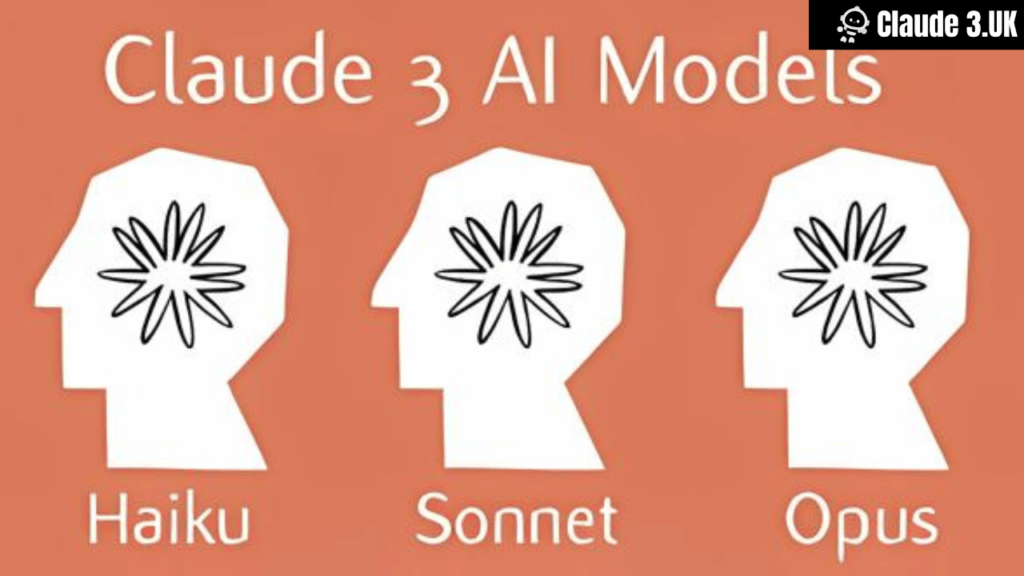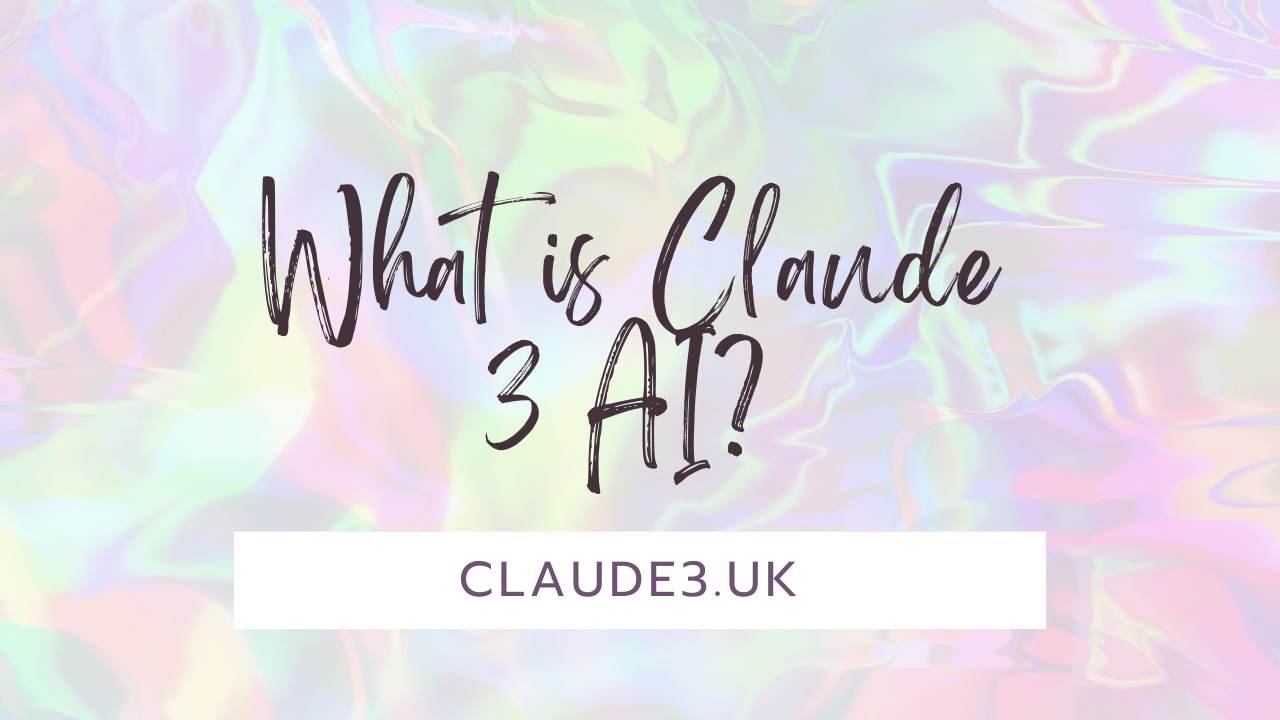Claude 3 is a state-of-the-art large language model (LLM) and AI chatbot developed by Anthropic, an AI startup backed by Amazon. Named after Claude Shannon, a pioneer in information theory, Claude 3 represents a significant leap in AI technology, offering advanced capabilities for text generation, answering open-ended questions, providing advice, and much more. This article delves into the details of Claude 3 AI, exploring its development, features, models, applications, and future prospects.
Introduction
Claude AI is built on the foundation of large-scale machine learning, trained on extensive datasets including books, Wikipedia articles, and other text sources. This training enables Claude 3 to generate coherent and contextually relevant text, making it a versatile tool for various applications. The model uses reinforcement learning and human feedback to improve its predictions and ensure high-quality outputs.
Development and Background
Anthropic, the developer of Claude 3, focuses on creating AI systems that are both powerful and aligned with human values. With backing from Amazon, Anthropic aims to push the boundaries of AI research while ensuring ethical considerations are at the forefront of its developments. It is the culmination of these efforts, designed to interact with users in a natural and meaningful way.
Key Features
AI boasts several key features that make it a powerful tool for various applications:
1. Natural Language Processing (NLP)
It excels in natural language processing, allowing it to understand and generate human language with high accuracy. This capability enables the AI to perform tasks such as sentiment analysis, text summarization, translation, and more.
2. Text Generation
One of it’s primary functions is text generation. It can create coherent and contextually appropriate text based on the prompts it receives, making it useful for content creation, writing assistance, and creative tasks.
3. Question Answering
Claude 3 can answer open-ended questions by drawing on its extensive training data. This feature is particularly useful for research, customer support, and educational purposes.
4. Task Automation
It can automate various text-related tasks, such as writing, editing, outlining, and summarizing text. This capability enhances productivity and efficiency, especially in content-heavy industries.
5. Reinforcement Learning and Human Feedback
Claude 3 utilizes reinforcement learning and human feedback to refine its responses and improve accuracy. This iterative process helps the AI learn from interactions and continuously enhance its performance.
Models of Claude 3 AI
Claude 3 AI comes in three different models, each optimized for specific purposes:
1. Opus
Claude 3 Opus is the most powerful model in the Claude 3 lineup. It is designed to handle complex tasks with human-like understanding, making it suitable for demanding applications that require high accuracy and depth. This model is available through a Claude Pro subscription, which costs $20 per month for consumers and $15 per million input tokens and $75 per million output tokens for businesses.
2. Sonnet
Claude 3 Sonnet is the open version of Claude AI, free for users. While it may not have the full capabilities of Claude 3 Opus, it still provides robust performance for general-purpose tasks, making advanced AI accessible to a broader audience.
3. Haiku
Claude 3 Haiku is the most compact and fastest model, optimized for tasks that require speed and cost-effectiveness. It is ideal for applications where quick responses are critical, and resources are limited.
Applications of Claude 3 AI
Claude AI has a wide range of applications across different sectors, driven by its advanced capabilities and versatile models:
1. Content Creation and Writing Assistance
Claude AI can assist writers by generating ideas, drafting content, editing text, and providing outlines. It helps streamline the writing process, making it easier for content creators to produce high-quality work efficiently.
2. Customer Support and Service
Businesses can leverage AI to enhance their customer support services. The AI can handle customer inquiries, provide information, and resolve issues, improving response times and customer satisfaction.
3. Research and Data Analysis
AI can aid researchers by answering complex questions, summarizing research papers, and analyzing large datasets. Its ability to process and generate text makes it a valuable tool for academic and scientific research.
4. Marketing and Social Media Management
Marketing professionals can use Claude 3 AI to generate engaging content for social media, create marketing copy, and analyze consumer sentiment. This helps in crafting targeted marketing strategies and improving brand engagement.
5. Education and E-Learning
Educators can utilize Claude AI to develop educational content, create interactive learning materials, and provide personalized tutoring. The AI’s ability to answer questions and explain concepts makes it a valuable resource for students and teachers alike.
6. Healthcare and Medical Advice
Claude AI can assist healthcare professionals by providing information on medical conditions, suggesting treatment options, and summarizing medical literature. While it should not replace professional medical advice, it can support healthcare providers in their decision-making processes.
Benefits
The adoption of Claude 3 AI offers several benefits across various domains:
1. Enhanced Productivity
By automating repetitive and time-consuming tasks, AI allows users to focus on more strategic and creative activities. This boosts overall productivity and efficiency.
2. Improved Accuracy
Claude 3 AI’s advanced algorithms and reinforcement learning capabilities ensure high accuracy in text generation and question answering, reducing errors and enhancing the quality of outputs.
3. Cost-Effective Solutions
With models like Haiku, businesses can access powerful AI capabilities without significant investment. This makes advanced AI accessible to smaller enterprises and startups.
4. Scalability
AI can scale to meet the needs of different users, from individual consumers to large organizations. Its flexible architecture supports various applications and workloads.
5. Accessibility
The availability of Sonnet as a free model ensures that advanced AI technology is accessible to a wide audience, promoting inclusivity and democratizing AI.

Challenges and Considerations in Using Claude 3 AI
Despite its advantages, the use of Claude 3 AI comes with certain challenges and considerations:
1. Data Privacy and Security
Handling sensitive information with AI requires robust data privacy and security measures. Ensuring that AI adheres to data protection regulations is crucial for maintaining user trust.
2. Ethical Concerns
Ethical considerations such as bias in AI responses and the potential for misuse must be addressed. Anthropic’s focus on ethical AI development aims to mitigate these risks, but continuous oversight is necessary.
3. Integration with Existing Systems
Integrating claude AI with existing IT infrastructure and workflows can be complex. Businesses need to ensure compatibility and seamless integration to fully leverage the AI’s capabilities.
4. Dependence on AI
Over-reliance on AI for critical tasks may lead to challenges if the AI fails or produces inaccurate results. It is important to maintain human oversight and intervention when necessary.
5. Training and Adaptation
Users may require training to effectively utilize Claude 3 AI’s features and capabilities. Ensuring that users are well-equipped to interact with the AI is essential for maximizing its benefits.
Future Prospects of Claude 3 AI
The future of Claude AI looks promising, with several potential developments and advancements on the horizon:
1. Enhanced Human-AI Collaboration
Future iterations of Claude AI will likely focus on enhancing collaboration between humans and AI. This involves improving the AI’s ability to understand context and provide more nuanced and relevant responses.
2. Integration with Emerging Technologies
Claude 3 AI could integrate with emerging technologies such as the Internet of Things (IoT), blockchain, and augmented reality. This would expand its applications and create new opportunities for innovation.
3. Continued Ethical AI Development
As AI technology evolves, ethical considerations will remain a priority. Anthropic and other developers will continue to refine their models to ensure fairness, transparency, and accountability in AI responses.
4. Expansion of Use Cases
The versatility of Claude 3 AI means that new use cases will continue to emerge. From creative writing and entertainment to complex data analysis and decision support, the potential applications are vast.
5. Improved User Experience
Future developments will focus on enhancing the user experience, making interactions with Claude 3 AI more intuitive and user-friendly. This includes improving the AI’s natural language understanding and generation capabilities.
Conclusion
Claude 3 AI, developed by Anthropic, represents a significant advancement in artificial intelligence, offering powerful capabilities for text generation, question answering, and task automation. With its various models— Opus, Sonnet, and Haiku—Claude 3 AI caters to a wide range of applications and user needs.
While it presents numerous benefits, including enhanced productivity, improved accuracy, and cost-effective solutions, it also requires careful consideration of challenges such as data privacy, ethical concerns, and integration complexities.
Looking ahead, the future of Claude 3 AI promises further advancements in human-AI collaboration, integration with emerging technologies, and continued ethical development, making it a transformative tool for businesses and individuals alike.
FAQs
What is Claude 3 AI?
Claude 3 AI is a large language model (LLM) and AI chatbot developed by Anthropic, designed to generate text, answer questions, provide advice, and perform various text-related tasks.
Who developed Claude 3 AI?
Claude 3 AI was developed by Anthropic, an AI startup backed by Amazon.
What are the main features of Claude 3 AI?
Key features include natural language processing, text generation, question answering, task automation, and reinforcement learning with human feedback.
What are the different models of Claude 3 AI?
Claude 3 comes in three models: Opus (most powerful, subscription-based), Sonnet (free to use), and Haiku (compact and fast).
How can Claude 3 AI be used in business?
It can be used for content creation, customer support, research, marketing, education, and healthcare, among other applications.
How does Claude 3 AI handle data privacy and security?
Claude 3 AI follows robust data privacy and security measures to protect user information and comply with regulations.
What are some challenges of using Claude 3 AI?
Challenges include data privacy concerns, ethical considerations, integration with existing systems, and potential over-reliance on AI.
How can users access Claude 3 AI?
Users can sign up at Claude.ai to start a conversation or use one of Claude’s default prompts.
